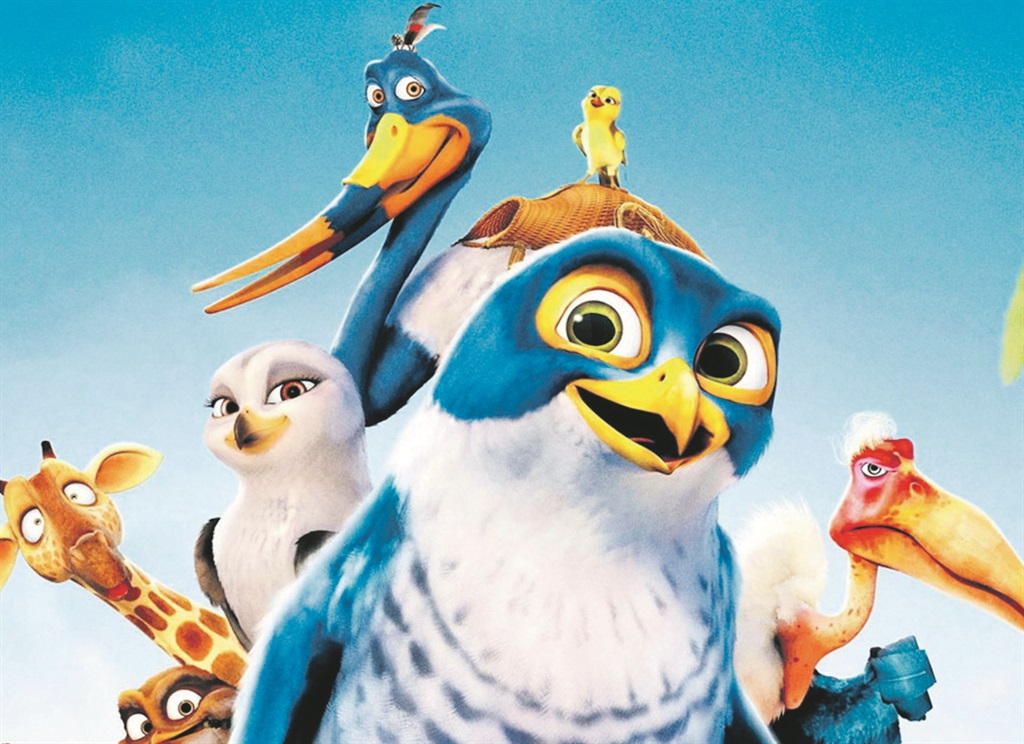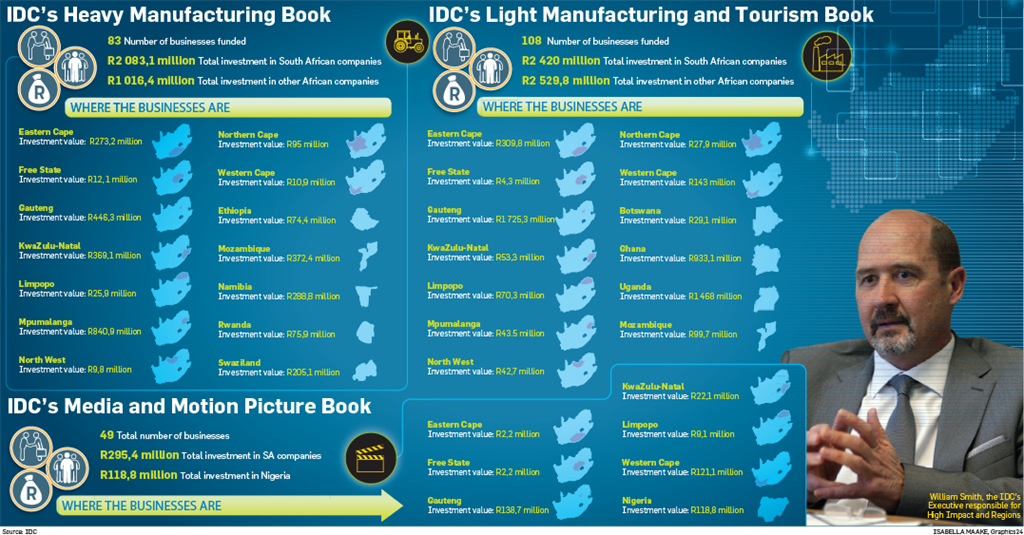
The IDC has identified creative industries as an important focus area for growth, writes Christina Kennedy
One of South Africa’s growth areas of the future is its budding digital animation sector, responsible for internationally successful feature films such as Khumba (2013) and Adventures in Zambezia (2012).
That’s the view of William Smith of the Industrial Development Corporation (IDC), who envisages a bustling central “animation hub” to keep the country’s animation creatives constantly and productively employed – retaining their skills here instead of being tempted to seek their fortunes overseas.
And there are plenty of other opportunities for those with the right vision and drive, particularly following the SABC’s recent decision to beef up its local television content quota to a staggering 80%.
“This is the time for entrepreneurs to stand up and come forward with their stories,” Smith urges.
Smith was recently appointed the IDC’s Divisional Executive in charge of “high-impact” industries as well as the regional offices.
But he’s served at the government’s industrial funding arm in various capacities for the past 23 years and knows his way around development finance.
He’s hyped about using IDC funding to turn South Africa’s industry into a “world-class player”, particularly through his area of responsibility: the country’s high-impact industrial sectors.
“High impact is where we can, for minimal effort, achieve the biggest impact,” he explains.
“We’re looking at the sectors that are already established and do not require us to develop a whole value chain. We can go in to fund them and achieve job creation, or transform them. We want to get the maximum bang for our buck.”
The sectors in his portfolio include heavy industry (glass, cement, bricks, rubber products); light manufacturing (ICT, furniture, scientific equipment); and tourism (hotel developments, tourist attractions); and media and motion pictures.
The Africa support unit also falls under his ambit.
Two years ago, he explains, the IDC realised that it “cannot fund everything” and that it would be prudent to focus on those areas where its investments could have the most impact on the economy.
With the help of consultants, the IDC isolated the industrial sectors – such as metals and mining, chemicals and agriculture – where value chains should be supported and developed, as well as the high-impact sectors, laden with potential, where a minimal financial outlay could set in motion a significant effect.
The IDC’s media and motion picture unit is the one about which Smith is the most excited, considering its vast employment potential as well as the country’s growing international stature as a sought-after film production destination.
“We have a huge focus on the film, television and radio sector, and we can do so much more,” says Smith. “Not so much the big blockbusters, but on a smaller scale, the local stories. We have the market for it and big players such as the SABC and Multichoice have hardly scratched the surface in the rest of Africa in terms of selling our product. If we can come up with enough stories and scripts, we have a huge industry we can support.”
In the past, the IDC has funded successful local films such as the Oscar-winning Tsotsi and the Nelson Mandela Biopic Mandela: Long Walk to Freedom.
Since Cape Town Film Studios opened in 2010, productions, including 19 major feature films and four seasons of TV’s emmy award winning Black Sails, using the studios have spent more than R2 billion and created temporary job opportunities for more than 77 500 people.
Adds Smith: “we are focusing on developing black film producers and directors. The IDC’s Emerging Black Filmmakers Transformation Fund was established specifically for this purpose, which I think is quite groundbreaking.
So we are inviting them to come to us with their feature film scripts and their local stories.”
The IDC funding works in tandem with a bouquet of public initiatives to boost the local film industry – from the department of trade and industry’s incentive schemes to the funding cycles of the National Film and Video Foundation.
The scripts (and any initiatives that are funded) also have to show “economic viability and sustainability”.
“We are in the business of creating long-term sustainable jobs, not short-term initiatives,” Smith explains.
The entity enlists people with knowledge of the movie industry to advise producers on what is likely to work from a commercial point of view, because the money invested will have to be repaid so that the IDC can “recycle” it back into other projects.
Smith warns that an IDC investment in your business is not money for jam – there are no free lunches on offer for vanity projects.
Entrepreneurs have to “have skin in the game”, as he puts it – they must co-invest their own money, however, if they want the IDC to cough up in kind.
Besides film and animation, another exciting sphere of opportunity is that of jewellery manufacturing.
South Africa has long been criticised for mining ample precious metals, yet not beneficiating them at source, instead allowing the bulk of the country’s raw materials to be processed into finished products – which have higher export values – outside the country.
In heavy manufacturing, there are opportunities for modernisation to make companies more competitive. And when it comes to tourism, the sector is ripe for the picking, says Smith.
“South Africa has reached near capacity in terms of rooms, but serious effort is still required to transform the industry. Locally, we are focusing on the smaller operators and the expansion of existing businesses. But there are major opportunities in the rest of Africa, where we can have the biggest impact tourism wise.”
The IDC also has an eye trained firmly on the continent with its “rest of Africa” unit. Smith says that, as international markets become saturated, many businesses are looking to Africa for expansion – and the entry point into Africa should be South Africa.
“So we need to look at how to get those entities to set up here, benefiting South Africa, and then move into the rest of Africa.”
Smith says there is a lot of confusion about the IDC’s mandate and precisely what it funds: initiatives that boost competitiveness, create jobs, grow the economy and foster transformation in the industrial sector and not in retail, for example.
Included in that mandate is targeting rural communities, women and young people to become the next generation of visionary industrialists. Here, Smith says, the IDC has “far exceeded” its target of funding female entrepreneurs in the past year.
He says that funding any business is always a risk and the funding pool is not bottomless, but he assures enterprising people with shape-shifting ideas that “if there’s a good transaction that comes in, and if it’s viable and meets the IDC objectives, we’ll fund it – we’ll find the money”.




 Publications
Publications
 Partners
Partners









